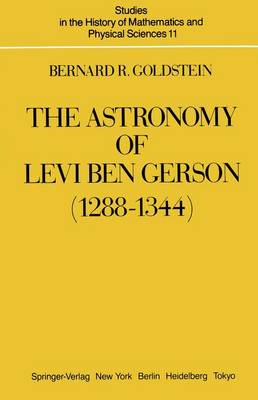Studies in the History of Mathematics and Physical Sciences
1 primary work
Book 11
It would seem that S. Munk was the first modern scholar to draw attention to the significance of Levi ben Gerson's Astronomy, surely the most original work on astronomy written in Hebrew in the Middle Ages. Munk (1859, p. 500) called for a specialist to undertake a serious study of this work, but there was little response to his plea in the succeeding century. Indeed, this is the first edition of the Hebrew text of any part of Levi's Astronomy but for the table of contents (Renan, 1893, pp. 624-32), and the poems celebrating the invention of the Jacob Staff that appear in chapter 9 (Carlebach, 191Oa, pp. 152-53). The text of Levi's Astronomy is written in a ponderous Hebrew style but the content sparkles with originality. The Ptolemaic tradition is subjected to a profound critique based on the idea that the planetary models must conform both to Levi's own observations as well as those of the ancients, and the claim that astronomical theory must be philosophically sound. The enduring vigor of the Ptolemaic tradition has been characterized by O. Neugebauer as fol lows: "There is no better way to convince oneself of the inner coherence of ancient and medieval astronomy than to place side by side the Almagest, al BaWini's Opus astronomicum and Copernicus's De Revolutionibus. Chapter by chapter, theorem by theorem, table by table, these works run parallel" (1957, pp. 205-6).
